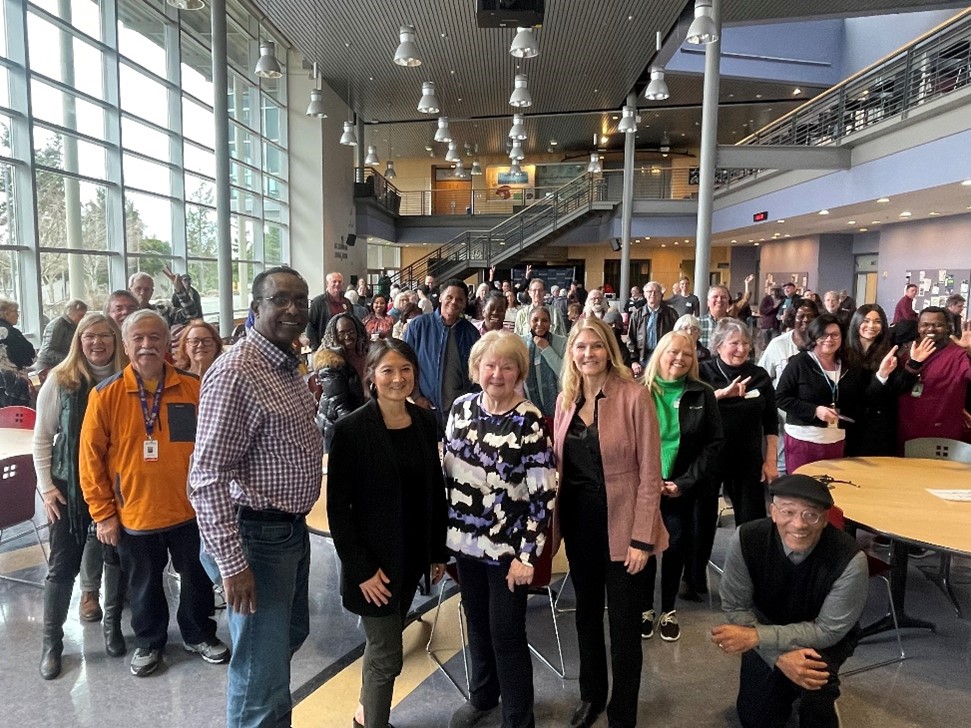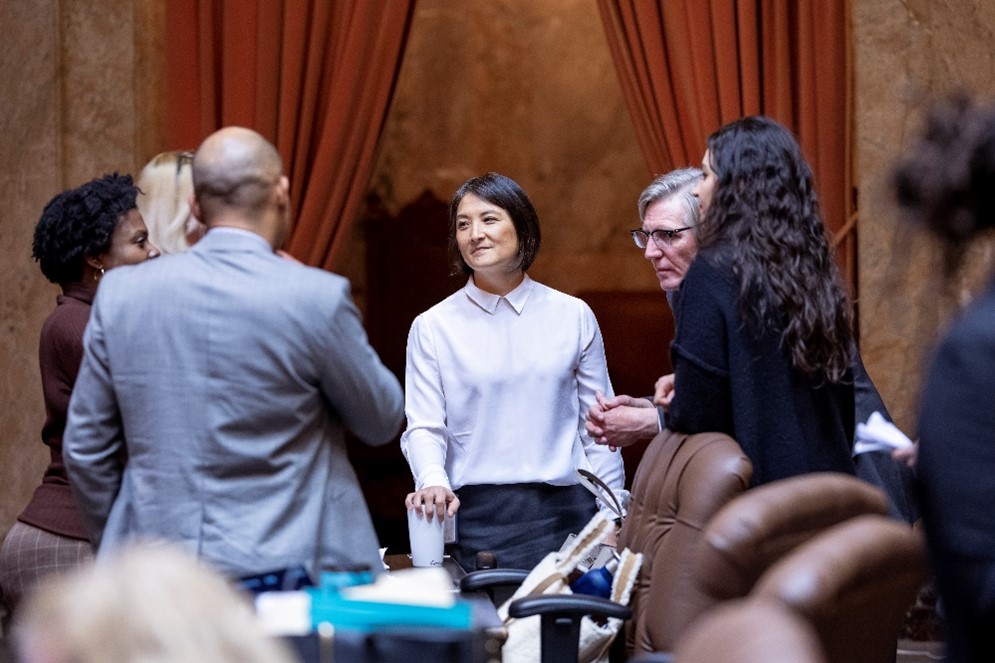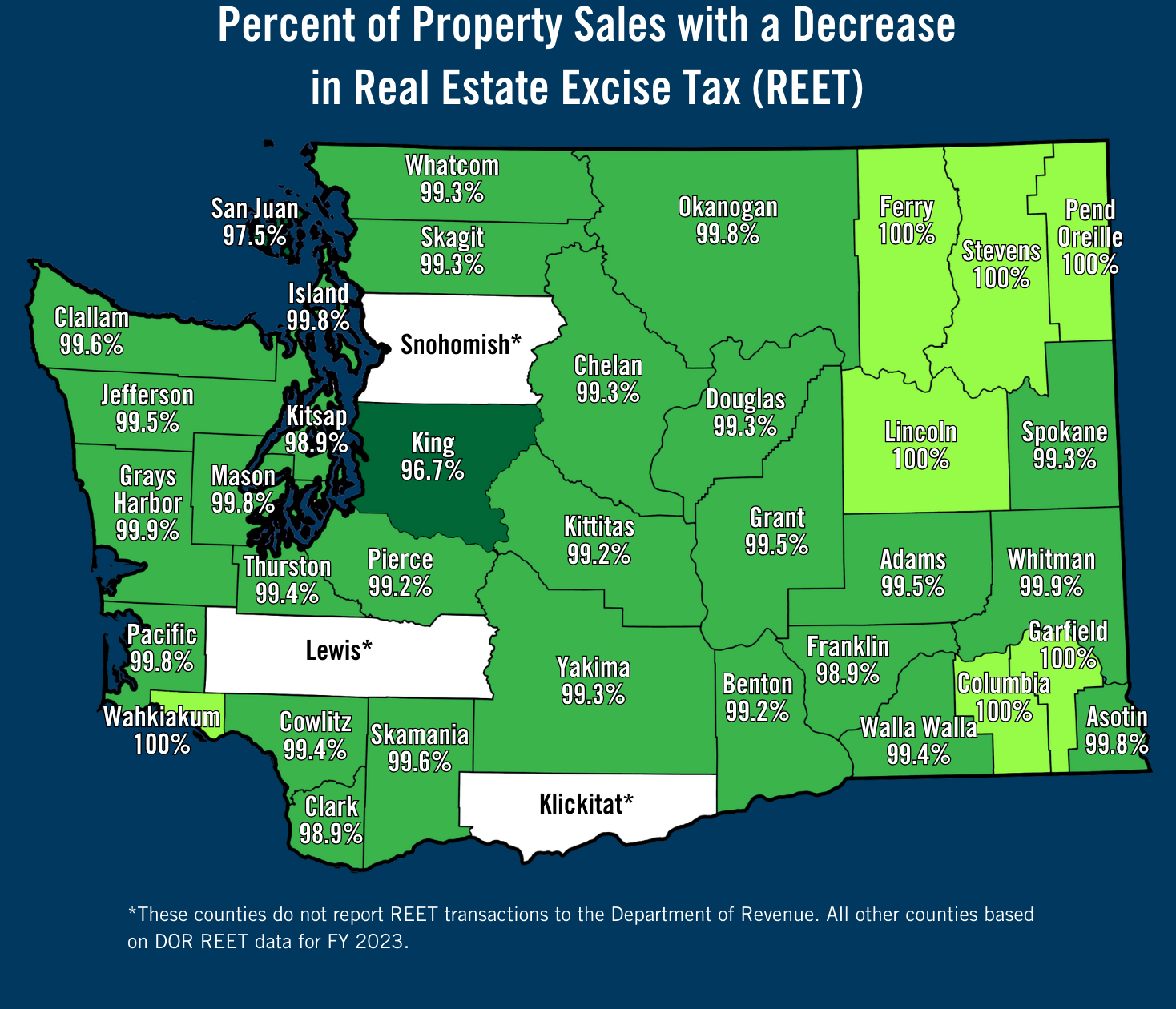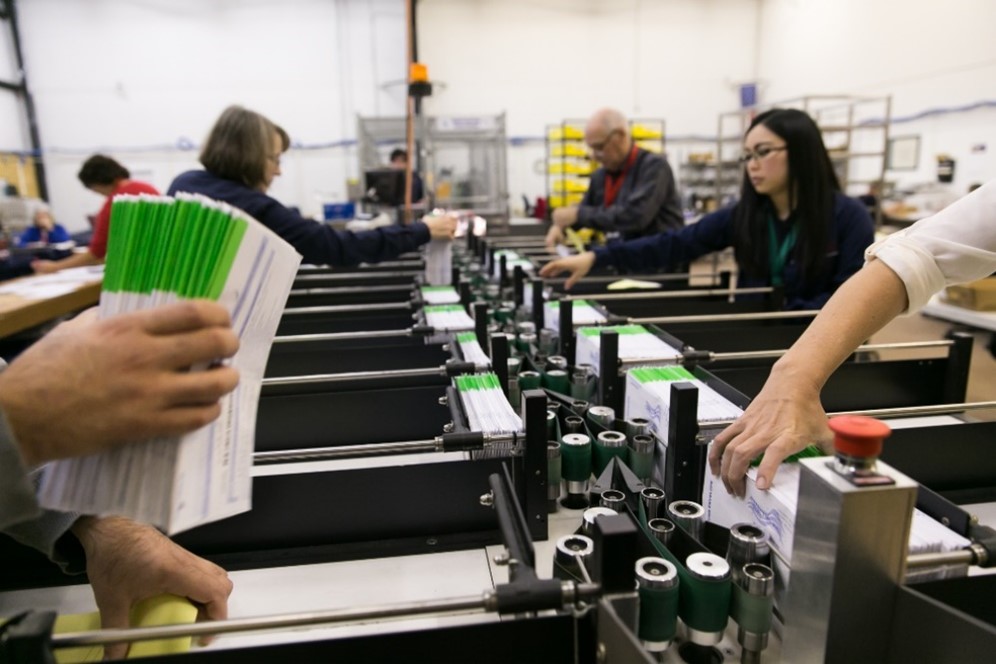Dear friends and neighbors,
Last weekend, Senator Keiser, Rep. Orwall and I hosted a joint town hall at Highline College in Des Moines. This is always a good experience and a time to speak directly with the people we serve. Our conversations touched many key issues that span across the district such as keeping people housed who are rent burdened by supporting rent stabilization and addressing the impacts of the fentanyl crisis. I think we had a very meaningful conversation about the states response in deploying life-saving supplies and educations to keep children and families safe.
We also talked about the horrific impacts of climate change on the most vulnerable people and why the Climate Commitment Act (CCA) is critically important for our airport impacted communities. Look for a telephone town hall announcement in the next few months as a post session discussion!

If you couldn’t attend, please remember I am always available by email. You can also contact my incredibly hard-working legislative assistant, Tyra. To stay up to date on upcoming events and news, consider following me on Facebook.
A Budget That Puts People First

Last year, we passed an unprecedented biennial budget to build on our investments during the pandemic. In this year’s supplemental budget proposal, we continue to prioritize strengthening Washington’s families so that they can thrive and have the tools to succeed. It reflects the voices of communities and the priorities of House Democrats.
We are continuing to address climate change by focusing on communities that are most impacted. This budget helps the people who are struggling to care of our elders, supports families in their homes and communities, and prioritizes care and recovery for our loved ones struggling in active addiction.
Major investments include:
- $150 million to children, youth, and families.
- $270 million in behavioral health investments.
- $200 million for fentanyl and opioid response.
- $785 million for healthcare and public health.
- $260 million for K-12 education.
- $140 million for higher education and workforce development.
- $105 million for long term care and developmental disabilities.
- $250 million to provide housing and local homeless services.
- $210 million for human services and poverty reduction programs.
- $310 million to provide clean energy programs and natural resource preservation.
- $105 million for public safety, legal aid, and corrections.
Ultimately, this budget acknowledges the interconnectedness of our state’s challenges. Together, we’re putting people first and building a stronger, healthier Washington for all.
Tax Justice for Working Families
Washington has come a long way in building a fairer tax system, but challenges remain. One key proposal currently being discussed is the Real Estate Transfer Tax, designed to create a dedicated funding source for critical affordable housing initiatives.
Here’s how it works: a 1% tax would apply only to the portion of property sales exceeding $3.025 million. This means the first $750,000 of any sale remains exempt, along with affordable rental properties, ensuring this plan doesn’t burden the majority of taxpayers.

While it might seem counterintuitive to tax housing when there’s a shortage, this plan is specifically designed to avoid increasing burdens on affordable housing. In fact, for over 98% of taxpayers, it could even represent a tax cut.
The real issue is the dire need for affordable housing solutions, particularly for low-income populations. Over the next 20 years, Washington needs over a million new units, with nearly half earmarked for those struggling to afford necessities.
By implementing this 1% tax on high-value homes, we can create a stable, dedicated revenue stream specifically targeted at tackling the affordable housing crisis. This bold approach will bring us closer to ensuring every Washingtonian has a safe and affordable place to call home.
Encouraging Multilingualism in Schools
My colleague, Rep. Ortiz-Self, has introduced House Bill 1228, which is a giant leap forward in education for multilingualism and cultural understanding. This landmark legislation invests in our children’s future by strengthening dual language and tribal language programs.
The bill strengthens Dual Language and Tribal Language programs, empowering multilingual educators to unlock students’ potential and prepare them for a globalized world. Parents have been asking for dual language programs that begin at the elementary school level because they know this is best practice and supported by research.
Multilingual graduates are highly sought-after due to their expanded career options, increased earning potential, and ability to bridge communities and ensure effective communication. This bill invests in our children’s future, preparing a globally competent workforce and fostering an inclusive society.
An Update on Bills in The Senate
House Bill 1932 bolsters local democracy, enhances voter turnout, and fosters equitable representation across communities by granting jurisdictions the option to conduct elections in even-numbered years instead of odd-numbered years. The legislation was passed out of the Senate State Government & Elections Committee yesterday. You can learn more about the bill by clicking here.

House Bill 1998 paves the way for co-living housing. Co-living spaces foster a sense of community and connection, especially important for young adults, seniors, and those seeking social interaction. In addition, this housing model encourages efficient land use and minimizes parking requirements, promoting smart and sustainable development practices. HB 1998 passed unanimously from the Senate Local Government, Land Use & Tribal Affairs Committee last week. Learn more by clicking here.
House Bill 2368 is designed to modernize and improve how we support the economic and social integration, as well as the basic needs, of immigrants and refugees arriving in Washington. This legislation seeks to codify the longstanding work of the Office of Refugee and Immigrant Assistance (ORIA) and creates a comprehensive Washington State Plan for Refugee Resettlement. The Senate Human Services Committee heard and voted to pass this bill earlier in the week.
Meet Our Page

Last week, we were honored to host Page Linh Do. Linh attends Choice Academy, and enjoys swimming, hiking, and tutoring others. Thank you, Linh, for spending the week with us in Olympia!
If you are a high school students from our district (ages 14-17), please consider taking advantage of the House Page Program. This unique program provides the opportunity to spend a week in the state capital, attend Page School, and contribute to the daily operations of the House. Plus, you can earn a stipend and gain community service hours!
We welcome students of all backgrounds and scholarships are available to ensure everyone can participate. Learn more and apply today! Don’t miss out – the 2024 session is entering its final weeks!
Best wishes,

Representative Mia Gregerson
33rd Legislative District
